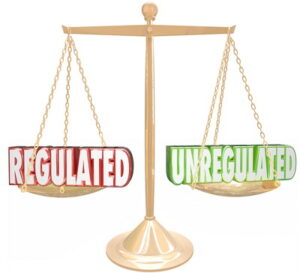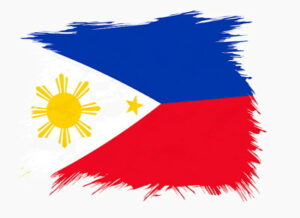 Unlicensed and illegal betting sites are popping up on a more frequent basis these days. Through these platforms, players can sign up, deposit and end up losing a lot of money. If such a site was operating from within the UK, it would end up raided. The Gambling Commission would be on and shut it down in no time.
Unlicensed and illegal betting sites are popping up on a more frequent basis these days. Through these platforms, players can sign up, deposit and end up losing a lot of money. If such a site was operating from within the UK, it would end up raided. The Gambling Commission would be on and shut it down in no time.
The issue is that most illegal betting sites base themselves offshore. And this makes them beyond the reach of the government or the Commission. Thus, players can register for an account and may end up suffering the consequences.
While UK sites have to be licensed to operate here and it is only legal to accept UK customers if you have a gambling license, ultimately the brands that do accept customers illegally are often in places where they are untouchable. Unfortunately the onus is largely on the user to ensure they only gamble with licensed sites if the want the legal protections afforded to them under UK law.
But where do these illegal betting sites actually base themselves? Is there a specific location that they all operate from? Or are they scattered across the globe? It would make more sense for them to base themselves from different areas. That increases their chances of staying hidden from authorities. What is the situation with these illegal brands, though? Does anyone know of places that they operate from today? We’re going to explore this and see if we can find out more about the unlicensed sites offering gambling.
What Makes Up an Illegal or Blacklisted Betting Site?
 Before we take a look at the locations of illegal betting sites, we should look at what they are. What makes up an illegal gambling site or betting platform?
Before we take a look at the locations of illegal betting sites, we should look at what they are. What makes up an illegal gambling site or betting platform?
First of all, they are not registered to operate. Legit betting sites must register in the countries where they want to operate. It is for this reason that national gambling regulators exist. They will issue licenses to legitimate operations, giving them the necessary permission. The Gambling Commission is the UK’s regulatory body. Thus, any casino with a domain found in a country where gambling is illegal isn’t registered. Such a site is one to avoid.
Often times, an illegal site will make use of flawed software. Any legitimate site will work with top-quality providers. Their software goes through thorough testing. This ensures that fair random number generators (RNGs) are in use within. Without such, a game could pretty much be set up to always see you lose. This is actually a factor of illegal casinos – their use of pirated software.
Your money is one of the most important assets. Especially today. If you were to deposit it at an illegal casino, there is a strong chance that it will disappear. And we don’t mean by you playing the fraudulent games. Instead, illegal casinos will often cause any deposited money to disappear. This occurs when they divert it elsewhere and not into your account. Sudden “technical flaws” are not uncommon reasons for a casino like this to use to explain away your lost funds. Some go ahead and deny you access to the funds in your account, too.
It is also key to consider the withdrawal process of illegitimate casinos. If you attempt to cash out your funds, payout fraud is often committed. The casino will withhold your money, delay the processing of your payouts and so on. This is all done to try and keep your funds in your account. And that leads to you playing the games even more. The basic premise behind this is to make sure your money goes to the casino through eventual losses.
Under-Regulated Areas Lead to Illegal Sites
 Illegal websites of this kind are able to set up shop due to under-regulation. The severe lack of regulations involved in some jurisdictions assists them in operating. And this has been under scrutiny for many years already.
Illegal websites of this kind are able to set up shop due to under-regulation. The severe lack of regulations involved in some jurisdictions assists them in operating. And this has been under scrutiny for many years already.
In May of 2022, a report surfaced relating to three areas playing host to illegal operators. The Council on Anti-Illegal Betting and Related Financial Crime is part of the Asian Racing Federation. It released a State of Illegal Betting report in the second quarter of 2022. That examined the status of illegal betting. Within it, 61% of online betting sites stood out. Highlighted as unlicensed or under-regulated, it serves as an astonishing figure. An under-regulated site is one that operates in a jurisdiction where they do not hold a licence.
The report incorporates an analysis of more than 500 betting sites. That determines whether they hold a licence or not, as well as the products they offer and so on. Website traffic, server locations and more is also included. While the study found that only 39% of sites hold proper licences, something else came about. The report uncovered three locations responsible for the biggest number of under-regulated sites.
A total of 62% of the under-regulated licences come from Curacao, Malta and the Philippines. Alongside this, the report suggests that traffic to illegal betting sites has grown. The increase stands at 37% between the 2019-20 and 2020-21 periods. It seems as though the pandemic pushed people towards illegal betting activity. This is especially noticeable when compared to legal and regulated sites.
Mirror websites are one of the more common practices, according to the report from the ARF. This sees the same website hosted on more than one URL. And this helps them to evade regulatory attention around the world. The investigation found that traffic may end up at mirror websites more often than the main ones.
The report notes that “white-label” licensing is a key weak spot in many well-regulated areas. This enables illegal betting operators to portray themselves as licensed. And even respected regulatory regimes suffer from this – including the UK. Customers often aren’t able to tell the difference between what is legal and what isn’t.
“This is not only a fine legal distinction but has damaging impacts on users and wider society…”, said the ARF. Another highlight in the report outlines the threat to the integrity of sports. This, it says, comes from the globalised growth of illegal betting sites. It also has an effect on gambling harm and organised crime. Illegal betting doesn’t contribute anything towards economy or health support. This is something “that requires continued attention”, said Winfried Engelbrecht-Bresges, Chairman of the ARF.
Issues with the Locations of Illegal Betting Sites
The three jurisdictions noted in the report from the ARF come with their own issues.
There are flaws within their regulations, without a doubt. Otherwise, illegal online betting sites wouldn’t be operating from within.
Malta
 Malta may be the most surprising location of the three. It is often used by brands to offer gambling services across Europe and sometimes beyond. Some big-name brands hold licences from the Malta Gaming Authority (MGA). And it operates as one of the more responsive regulators around the world, too. Yet it has issues with its general licensing structure.
Malta may be the most surprising location of the three. It is often used by brands to offer gambling services across Europe and sometimes beyond. Some big-name brands hold licences from the Malta Gaming Authority (MGA). And it operates as one of the more responsive regulators around the world, too. Yet it has issues with its general licensing structure.
To begin with, there is a limited self-exclusion process in place with a Malta licence. This means that players don’t get quite the same opportunities to restrict themselves. Whereas in the United Kingdom all licensees have to be a part of GamStop, this isn’t the case with the MGA. Anyone looking to exclude themselves from online gambling may find it difficult. Not only that, but it would be simple for them to revoke such, too.
Further to this, the MGA policies on responsible gambling are questionable. That does tie-in to the issue surrounding self-exclusion. Responsible gambling should always be a key focus for operators and regulatory bodies. Otherwise, players are at risk of suffering from problems. European countries without their own licensing system still accept sites with MGA certificates. Quite the surprise for such a well-known licensing body.
Curacao
 Curacao is an island nation which has long had troubles with illegal betting brands. Even though it has been active since 1996, it hasn’t got the best reputation. Brands seeking out a Curacao licence need to base themselves out of the country, too. The tax rates there are very low for operators. And this is one of the main draws for them. Alongside this, regulation comes with fewer restrictions. And this had bred a mass of gambling sites that have poor reputations. Any company wanting to scam someone but do so through a legal-looking site would likely choose Curacao. A 2% licence tax rate is far more attractive than a 20% tax rate, for example.
Curacao is an island nation which has long had troubles with illegal betting brands. Even though it has been active since 1996, it hasn’t got the best reputation. Brands seeking out a Curacao licence need to base themselves out of the country, too. The tax rates there are very low for operators. And this is one of the main draws for them. Alongside this, regulation comes with fewer restrictions. And this had bred a mass of gambling sites that have poor reputations. Any company wanting to scam someone but do so through a legal-looking site would likely choose Curacao. A 2% licence tax rate is far more attractive than a 20% tax rate, for example.
It is a fact that Curacao eGaming has been attempting to better its reputation of late. Certain signs of improvement are on display. But it has a long way to go still. And it remains a location for illegal and under-regulated companies to operate from. Even those companies that own a Curacao licence don’t announce it on their sites. And this is likely because they know the bad opinion that people have about it.
Curacao-licensed sites will often welcome players from a mass of countries. Even from locations where gambling is not a legal activity. This means that you can often find U.S. players or Australians registering at them. These players aren’t often able to find sites in their home countries to play at. And this leads them to offshore sites, which are sometimes unregulated. The regulator has such a reputation of not dealing with player complaints. And due to its location in the middle of the Caribbean, it is quite unreachable.
A recent news article broke regarding the country’s regulatory body, though. In the midst of the COVID-19 pandemic, the Dutch government offered a bailout package to Curacao. As a Netherlands-owned island, the government offered €125 million in financial aid. Yet that help came with conditions. Part of those conditions involved the structural reforms of Curacao eGaming. An independent regulator was also requested for the online gaming sector. It launched a new gambling authority in July 2022. Known as the Curacao Gaming Authority (CGA), this will control the issuing of B2C and B2B licences. Time will tell if this tightens up the Curacao gaming scene.
The Philippines
 The Philippines has been trying to get on top of the illegal gambling taking place from its shores. In 2019, the country closed down more than 30,000 gambling sites, citing corruption as the reason. This took place under orders from President Rodrigo Duterte. It saw all state gambling facilities close. And they remained closed until the end of a huge corruption probe. That doesn’t seem to have had such a grand effect, though.
The Philippines has been trying to get on top of the illegal gambling taking place from its shores. In 2019, the country closed down more than 30,000 gambling sites, citing corruption as the reason. This took place under orders from President Rodrigo Duterte. It saw all state gambling facilities close. And they remained closed until the end of a huge corruption probe. That doesn’t seem to have had such a grand effect, though.
In June 2022, Universal Entertainment spoke of the regulatory body being corrupt itself. A statement from Universal condemned PAGCOR, the Philippine licensing body. It said that the organisation favoured one side of a dispute without just cause. That dispute surrounded the hostile takeover of Okada Manila. PAGCOR chose Kazuo Okada as its preferred side. Yet Universal owns Okada Manila as parent company of Tiger Resort, Leisure and Entertainment.
Efforts in the country don’t seem to be working very well. In June of 2022, reports suggested a turnover in the trillions of pesos for illegal gambling. And while the regulatory body was set up to help combat this, it hasn’t done a very good job. Illegal gambling is everywhere in the Philippines. And it seems as though players around the world involve themselves in it, too.
According to reports, a large number of illegal online betting sites are active there. These also appear on social media, allowing people to sign up and bet without any issue. No verification process takes place, either. Things are convenient due to the payment gateways as well. Players can add funds to their account with a single click. Extra efforts introduced by the government sought to expand legalisation in the Philippines. But for the most part, customers don’t tend to know they’re using illegal sites. Being unlicensed, the government won’t see any of the income from these sites. Instead, players from around the world wager their money and it all goes to the site operators. The domains may be within the Philippines, but they often aren’t licensed by PAGCOR.
There is a lot more than needs to be done by the Filipino government. And indeed, by the regulatory bodies in Curacao and Malta. The fight against illegal gambling is likely not an easy one to win. But more could be enacted to try and reduce it and protect the masses.